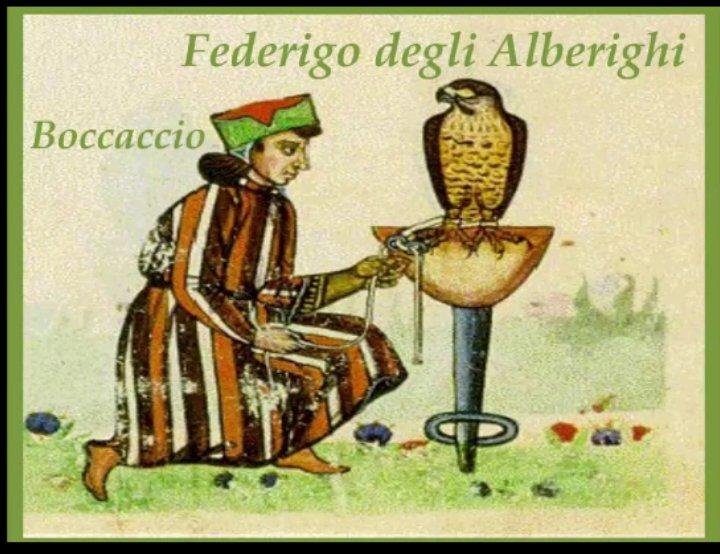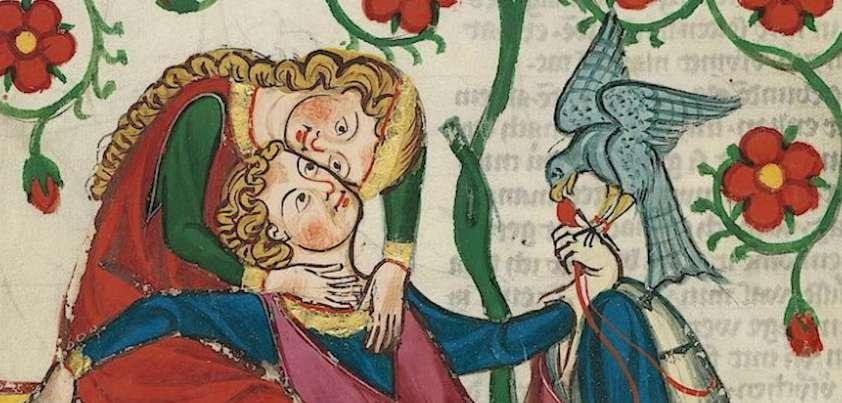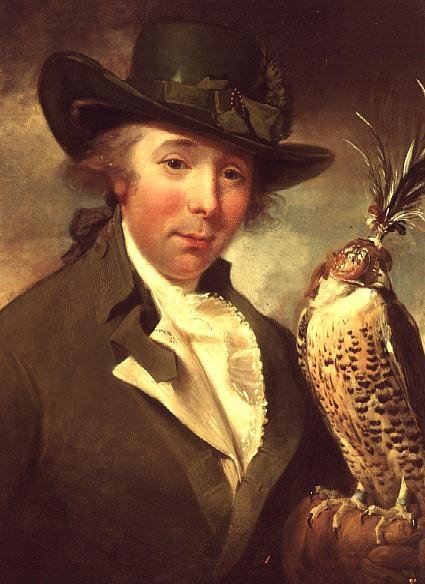Beyond Courtly Love:Social Commentary in Boccaccio's "Federigo degli Alberighi"
Introduction:
Giovanni Boccaccio's Decameron is a colorful weave of tales which represents the social and cultural scene of 14th-century Italy. Among many of its fascinating tales, Federigo degli Alberighi is remarkable for the touching portrayal of souring love and the ultimate abnegation in it.This tale demonstrates the masterful employment of irony and pathos by Boccaccio, which prompts one to question what is of greater importance, love or social standing and material wealth. This critique will analyze the major components of the tale, dismantling its themes, character motivation, and enduring significance.
Summary:
Federigo is a knight who is utterly smitten with Monna Giovanna, a rich widow. He spends his wealth attempting to win her, but she does not give him the time of day. It takes some years, and Monna Giovanna's son falls ill and she turns to Federigo, as he is the sole person in the neighborhood that can assist her. Federigo, who is impoverished and has lost everything, has to slaughter his valuable falcon the only object he owns that holds any significance to host a magnificent banquet for Monna Giovanna. When Monna Giovanna sees his sacrifice, the depth of his love for her and the poverty that he lives in, she comprehends the value of his love and marries him later.
Analysis:
There is irony involved at different levels in the story. Federigo's dramatic actions initially do not catch the attention of Monna Giovanna, but his final act of sacrificing his dearly loved falcon wins it. This ironic turn is focused on the inability of material expressions of love and on the strength of absolute selflessness. Monna Giovanna's own initial spurning of Federigo's advances is also ironic, in that she does not appreciate the true quality of his love until demonstrated so by ultimate sacrifice.
The story does play with the conventions of courtly love, but distorts them as well. While Federigo initially adheres to the conventions of the courtly lover wasting money, showing strength (though not in battle)his final act is a distortion. His sacrifice is something greater than the normal show of wealth and strength and instead concentrates on deep emotional attachment.
The characters are interesting too. Federigo is a sympathetic and noble character, and Monna Giovanna, too, undergoes a change, realizing possibly a larger potential for love and compassion than at first suggested by her selfish desire for wealth and status. The conclusion of the story, though adequate for Federigo and Monna Giovanna, is tinged indeed with a hint of sorrow; Federigo's poverty and loss of the falcon serve only to underscore the price he pays for his love.
Personal Response
Federigo's tale moved me profoundly. Though his initial response may be overwhelming, the final sacrifice appeals to such passion that is heartbreaking but ultimately uplifting. Monna Giovanna's change of heart is also believable and is said to pass beyond superficial experiences and behold the depth of Federigo's emotion. The bitter-sweet conclusion of the tale lingered with one, asking for the intrinsic value in love and what it is that we can lose for it.
Conclusion:
Boccaccio's story of Federigo degli Alberighi is a wistful and moving work of investigation into love, sacrifice, and the frequently ironic nature of human relationships. The timeless nature of the story lies in its capacity to challenge toward reflection on the very nature of love and the futility of wealth in attaining sincere affection. Federigo's renunciation is ever an enduring symbol of selfless love, and the transformation of Monna Giovanna is an eternal reminder of the potential for change and enlightenment even within hierarchical society. The staying power of the tale is in its ongoing ability to engage the reader with its moving analysis of the human condition.
Introduction:
Giovanni Boccaccio's Decameron is a colorful weave of tales which represents the social and cultural scene of 14th-century Italy. Among many of its fascinating tales, Federigo degli Alberighi is remarkable for the touching portrayal of souring love and the ultimate abnegation in it.This tale demonstrates the masterful employment of irony and pathos by Boccaccio, which prompts one to question what is of greater importance, love or social standing and material wealth. This critique will analyze the major components of the tale, dismantling its themes, character motivation, and enduring significance.
Summary:
Federigo is a knight who is utterly smitten with Monna Giovanna, a rich widow. He spends his wealth attempting to win her, but she does not give him the time of day. It takes some years, and Monna Giovanna's son falls ill and she turns to Federigo, as he is the sole person in the neighborhood that can assist her. Federigo, who is impoverished and has lost everything, has to slaughter his valuable falcon the only object he owns that holds any significance to host a magnificent banquet for Monna Giovanna. When Monna Giovanna sees his sacrifice, the depth of his love for her and the poverty that he lives in, she comprehends the value of his love and marries him later.
Analysis:
There is irony involved at different levels in the story. Federigo's dramatic actions initially do not catch the attention of Monna Giovanna, but his final act of sacrificing his dearly loved falcon wins it. This ironic turn is focused on the inability of material expressions of love and on the strength of absolute selflessness. Monna Giovanna's own initial spurning of Federigo's advances is also ironic, in that she does not appreciate the true quality of his love until demonstrated so by ultimate sacrifice.
The story does play with the conventions of courtly love, but distorts them as well. While Federigo initially adheres to the conventions of the courtly lover wasting money, showing strength (though not in battle)his final act is a distortion. His sacrifice is something greater than the normal show of wealth and strength and instead concentrates on deep emotional attachment.
The characters are interesting too. Federigo is a sympathetic and noble character, and Monna Giovanna, too, undergoes a change, realizing possibly a larger potential for love and compassion than at first suggested by her selfish desire for wealth and status. The conclusion of the story, though adequate for Federigo and Monna Giovanna, is tinged indeed with a hint of sorrow; Federigo's poverty and loss of the falcon serve only to underscore the price he pays for his love.
Personal Response
Federigo's tale moved me profoundly. Though his initial response may be overwhelming, the final sacrifice appeals to such passion that is heartbreaking but ultimately uplifting. Monna Giovanna's change of heart is also believable and is said to pass beyond superficial experiences and behold the depth of Federigo's emotion. The bitter-sweet conclusion of the tale lingered with one, asking for the intrinsic value in love and what it is that we can lose for it.
Conclusion:
Boccaccio's story of Federigo degli Alberighi is a wistful and moving work of investigation into love, sacrifice, and the frequently ironic nature of human relationships. The timeless nature of the story lies in its capacity to challenge toward reflection on the very nature of love and the futility of wealth in attaining sincere affection. Federigo's renunciation is ever an enduring symbol of selfless love, and the transformation of Monna Giovanna is an eternal reminder of the potential for change and enlightenment even within hierarchical society. The staying power of the tale is in its ongoing ability to engage the reader with its moving analysis of the human condition.
Beyond Courtly Love:Social Commentary in Boccaccio's "Federigo degli Alberighi"
Introduction:
Giovanni Boccaccio's Decameron is a colorful weave of tales which represents the social and cultural scene of 14th-century Italy. Among many of its fascinating tales, Federigo degli Alberighi is remarkable for the touching portrayal of souring love and the ultimate abnegation in it.This tale demonstrates the masterful employment of irony and pathos by Boccaccio, which prompts one to question what is of greater importance, love or social standing and material wealth. This critique will analyze the major components of the tale, dismantling its themes, character motivation, and enduring significance.
Summary:
Federigo is a knight who is utterly smitten with Monna Giovanna, a rich widow. He spends his wealth attempting to win her, but she does not give him the time of day. It takes some years, and Monna Giovanna's son falls ill and she turns to Federigo, as he is the sole person in the neighborhood that can assist her. Federigo, who is impoverished and has lost everything, has to slaughter his valuable falcon the only object he owns that holds any significance to host a magnificent banquet for Monna Giovanna. When Monna Giovanna sees his sacrifice, the depth of his love for her and the poverty that he lives in, she comprehends the value of his love and marries him later.
Analysis:
There is irony involved at different levels in the story. Federigo's dramatic actions initially do not catch the attention of Monna Giovanna, but his final act of sacrificing his dearly loved falcon wins it. This ironic turn is focused on the inability of material expressions of love and on the strength of absolute selflessness. Monna Giovanna's own initial spurning of Federigo's advances is also ironic, in that she does not appreciate the true quality of his love until demonstrated so by ultimate sacrifice.
The story does play with the conventions of courtly love, but distorts them as well. While Federigo initially adheres to the conventions of the courtly lover wasting money, showing strength (though not in battle)his final act is a distortion. His sacrifice is something greater than the normal show of wealth and strength and instead concentrates on deep emotional attachment.
The characters are interesting too. Federigo is a sympathetic and noble character, and Monna Giovanna, too, undergoes a change, realizing possibly a larger potential for love and compassion than at first suggested by her selfish desire for wealth and status. The conclusion of the story, though adequate for Federigo and Monna Giovanna, is tinged indeed with a hint of sorrow; Federigo's poverty and loss of the falcon serve only to underscore the price he pays for his love.
Personal Response
Federigo's tale moved me profoundly. Though his initial response may be overwhelming, the final sacrifice appeals to such passion that is heartbreaking but ultimately uplifting. Monna Giovanna's change of heart is also believable and is said to pass beyond superficial experiences and behold the depth of Federigo's emotion. The bitter-sweet conclusion of the tale lingered with one, asking for the intrinsic value in love and what it is that we can lose for it.
Conclusion:
Boccaccio's story of Federigo degli Alberighi is a wistful and moving work of investigation into love, sacrifice, and the frequently ironic nature of human relationships. The timeless nature of the story lies in its capacity to challenge toward reflection on the very nature of love and the futility of wealth in attaining sincere affection. Federigo's renunciation is ever an enduring symbol of selfless love, and the transformation of Monna Giovanna is an eternal reminder of the potential for change and enlightenment even within hierarchical society. The staying power of the tale is in its ongoing ability to engage the reader with its moving analysis of the human condition.
0 Yorumlar
·0 hisse senetleri
·117 Views
·0 önizleme






